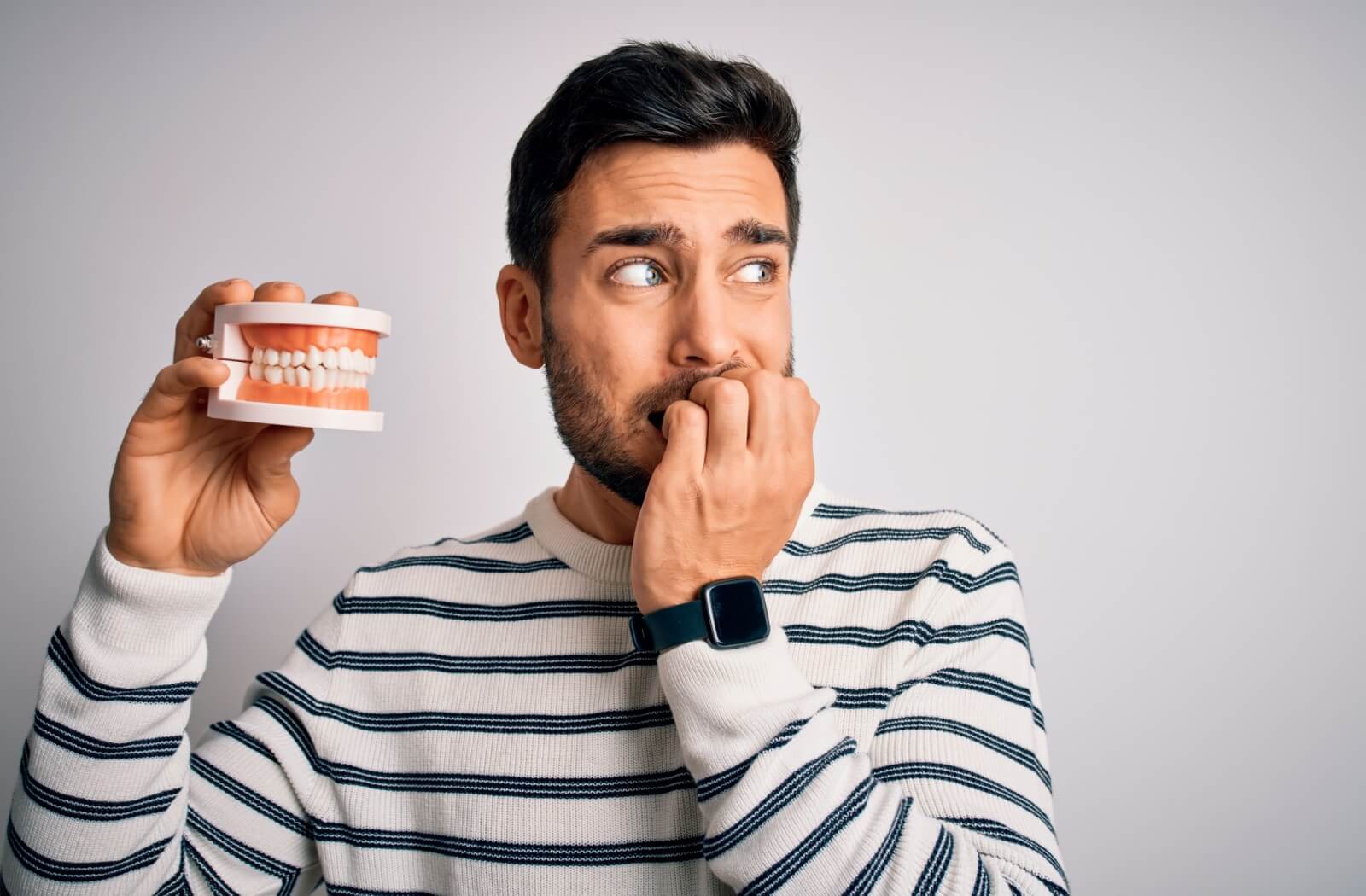A Guide to Overcoming Dental Anxiety

A Guide to Overcoming Dental Anxiety
For some, a trip to the dentist can bring about considerable unease, with the hum of drill machines and the sterile surroundings fuelling a profound fear termed dental anxiety. Yet, it is vital to understand that such apprehension is widespread and, at its core, it is entirely manageable.
One effective method in handling both adult and child dental anxiety is nitrous sedation. If you're feeling stressed about your dentist visit, dodging it isn't the solution. Missing crucial preventive check-ups may result in a need for more complicated procedures later. It's better to express your concerns to your dentist and explore possible solutions to deal with them.
What Is Dental Anxiety?
Dental anxiety is a common concern, affecting approximately 36% of the population. Additionally, 12% of individuals experience severe dread. The apprehension often associated with anticipation can discourage individuals from pursuing necessary dental health care.
Why it Happens & What Provokes it
Dental anxiety often arises from previous negative experiences, a fear of discomfort, or even narratives and perceptions influenced by the media or others around you. Regularly reported triggers of dental anxiety or apprehension towards dental practitioners comprise the following:
- Odors
- Needles
- Choking
- Blood
- Noises
- Anesthesia
The feeling of lost control and vulnerability experienced in the dentist's chair can elevate this anxiety. However, once your dentist is informed about your concerns, modifications can be made to your environment to avoid these triggers.
Symptoms & Reactions
Similar to all types of anxiety, dental anxiety may trigger a variety of bodily, emotional, and behavioral responses. Some include:
- Chills
- Lightheadedness
- Excessive sweating
- Nausea
- Heart palpitation
- Shortness of breath
- Shaking
- Upset stomach
It's not uncommon to experience emotional responses such as tears or signs of worry just at the thought of a dental appointment, or even sleepless nights leading up to the visit.

How To Manage Dental Anxiety
Navigating through dental anxiety can be rendered less daunting with the implementation of insightful and effective techniques
Communication with the Dentist
Transparent dialogue with your dentist is essential. Sharing your apprehensions can help tailor treatment options and determine the speed of your dental procedures
Relaxation Techniques
Techniques of relaxation can remarkably reduce anxiety during your trips to the dentist. Here are some beneficial strategies to help you manage:
Methods of Distraction
Embracing enjoyable distractions can facilitate a sense of calm. Pack your favorite tunes, engaging audiobooks, or intriguing podcasts for your listening pleasure during your appointment. This can divert your attention from the dental procedure at hand, aiding in the alleviation of any anxiety.
Nitrous Sedation
If you're challenged by intense dental anxiety, sedation alternatives such as nitrous oxide, often called "laughing gas," can be a transformative solution.
Nitrous sedation effectively calms your nerves and induces a sense of comfort throughout your dental treatments. The colorless and scentless gas activates swiftly, inducing a soothing sensation. Once your dental procedure ends and the nitrous sedation is deactivated, you can expect the effects to vanish, leaving no adverse after effects.
This method is also deemed beneficial for children, serving as a powerful aid to alleviate their apprehensions about dental visits.
Complications Arising from Dental Anxiety
A trip to the dentist might cause many people anxiety, but putting it off can have consequences for your oral health, which is intrinsically connected to your overall wellbeing. Overlooked dental health may result in:
- Aggravations from diabetes
- Tooth decay
- Gum ailments like gingivitis and periodontal disease
- Cardiovascular disease
- Breathing issues
- Losing your teeth
Neglecting essential cleanings and dental check-ups may lead to complications that necessitate more extensive procedures such as root canals, dental implants, tooth extractions, and other restorative dentistry interventions.
Discover a Soothing Atmosphere for Your Dental Appointments
At Embrace Dental Care, our goal is to create an atmosphere of peace and certainty, from our team's attitude to your precise treatment. A setting like this can play a critical role in alleviating dental fears, especially in children who may be easily influenced and more prone to anxiety.
Dealing with dental fears is a journey, and every minor triumph should be applauded. It's our hope that dental visits will gradually shift from intimidating to something more commonplace.
Getting a handle on dental fears is vital for maintaining good oral health and overall well-being. Don't hold off for a dental crisis - schedule your routine check-up and cleaning every 6 months to keep your smile bright and healthy.